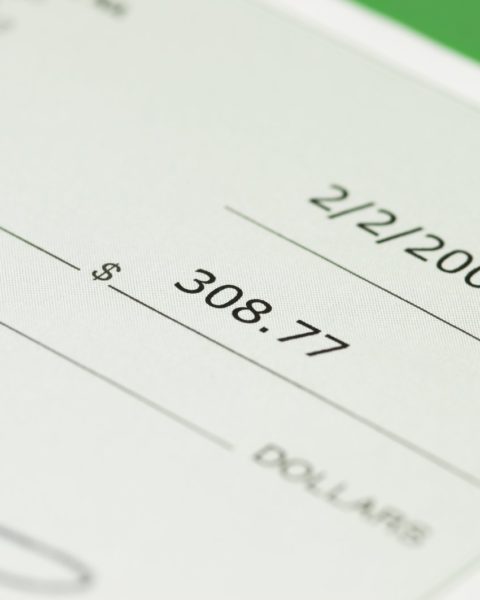If you are a regular shopper at Walmart, you may have encountered a Walmart employee checking customers’ receipts as they leave the store.
If this practice has left you wondering whether you must comply or its legality, this post will tell you all you need to know.
Contents
What is Walmart’s Policy on Checking Receipts?
Walmart have associates stationed at their store exits who check your receipt while leaving the store. The retailer started checking the receipts to minimize cases of shoplifting. For example, in 2015, Walmart lost $3 billion or 1% of its revenue to shrinkage.
In addition to showing your receipt at the exit, Walmart may scan your receipt too. This usually happens when you set the sensors off as you exit the store.
However, scanning your receipt does not mean they suspect you of theft. It is only a precaution to ensure that the cashier has charged all your purchases.
A Walmart greeter cannot force you to show your receipt. There is also no legal backing to this practice unless they have reasonable proof to suspect you of shoplifting.
Do You Legally Have to Show Your Receipt at Walmart?
You are not legally bound to show your receipt to a Walmart associate while leaving the store. You can ignore the greeter and walk on if you want to. If the greeter stops you or forces you to show the receipt, they may violate your rights.
However, you can choose to show the receipt out of courtesy. While there is no law backing Walmart to check receipts, the retailer may argue that it helps prevent theft on its side.
What Is the Shopkeeper’s Privilege?
Under common law, Shopkeepers Privilege refers to the right of a shopkeeper to detain a suspected shoplifter for a given time. A shopkeeper may do this if they have reason to believe that the detainee committed or tried to commit theft in the store.
Walmart may use shopkeepers’ privilege to detain you if they suspect you have shoplifted an item in the store. For example, if you set off the sensors at the exit, a Walmart employee may use this as a reason to detain you. Walmart may also use shopkeeper’s privilege if they have surveillance footage of you shoplifting or if its staff or another customer reports suspicious activity.
Know Your Consumer Rights
Although Walmart may claim shopkeepers’ privilege to detain you, the retailer should ensure that they don’t infringe on your rights as a consumer. Some of the rights you can claim are:
- You can only be detained for a short time – Walmart can only detain a suspected shoplifter for a short time until the police arrive. They should also allow you to leave immediately if they ascertain that you have not committed an offense
- They cannot use unreasonable force or coercion – a Walmart employee is not allowed to force you to comply with their request. If an employee uses force to detain you, you may claim false imprisonment against the store, which is a civil violation
- The retailer should present specific facts – Walmart should present specific facts to back their suspicion. Otherwise, they cannot hold you under the shopkeeper’s privilege law
What Happens if You Refuse to Show Your Receipt at Walmart?
There is no law requiring you to show your receipt at Walmart. However, declining to do so may give a Walmart associate probable cause to detain you under Shopkeepers’ Privilege law. In some cases, you may also encounter an untrained Walmart employee who may forcibly detain you if you refuse to show your receipt.
Walmart can also ban you from its premises if you refuse to show your receipt. This is unlike Costco, which requires its members to show their receipts on demand as part of their membership agreement. Since Walmart does not have such provisions, it can only ban you from its stores.
What Happens When You Lose Your Receipt Before Leaving Walmart?
There is no need to worry if you misplace or lose your Walmart receipt before you leave the store. You can use your payment card to get a digital copy of the receipt.
To retrieve a copy of the receipt, go to Walmart’s online receipt lookup tool and enter the purchase location and details. The tool will provide you with a digital receipt which you can show to the Walmart employee. You can also return to the checkout counter and request the associate who served you to verify your payment.
FAQs
How far back can Walmart look up receipts?
If you have lost your receipt, a Walmart customer service employee may be able to look up to 90 days of your purchase history to retrieve it. Anything further than that would require the intervention of a Walmart manager.
Can you view Walmart receipts online?
You can use Walmart’s online receipt lookup tool to view a receipt. To do this, enter the store location, purchase date, last four digits of your payment card, and the receipt total.
Can Walmart legally check your bags?
No, Walmart cannot legally check your bags unless they have a reason to suspect that you have shoplifted in the store. In addition, they cannot use unreasonable force or coercion to make you comply.
Can Walmart detain you in-store?
Yes, Walmart can detain you in-store if they suspect you of theft. However, they must present enough proof and can only detain you until the police arrive.
Can you get a printed receipt from Walmart Pay?
Yes, you can print your Walmart Pay receipt. Here’s how to do that.
- Log in to your Walmart account
- Click on Menu
- Select Purchase history
- Select the order you need the receipt for
- lick on Print
Can you get a printed receipt from Walmart pick up?
Yes, you can get a printed receipt from a Walmart pick-up order. You can access it under the purchase history in your Walmart account. Select the particular order and click on print.
Conclusion
Walmart may sometimes ask you to show your receipt while leaving the store to minimize theft incidences. You are, however, under no law to comply with the request.
However, a Walmart employee may detain you for refusing to produce your receipt if they have reasonable proof that you have shoplifted. Otherwise, an employee cannot force you to show a receipt or detain you without a valid reason.








You state that Wal Mart lost $3 billion or 1% of revenue to “shrinkage” and implied that this was the result of shoplifting. As a former loss prevention manager for a major big box retailer I feel this needs to be clarified. Shoplifting only made up a small percentage of that loss. In large retail operation the majority of shrinkage losses come from employees and careless operations – whether direct theft, receiving damaged goods, damaging goods when stocking, through accident, mis-pricing, expiration dates or any of several other issues. The focus of my job dealt with ensuring that damaged goods were correctly catalogued for return to manufacturer or supplier. That that items we sold in the store and used for store purposes (displays, demos, etc.) were also correctly recorded and charged off to store operations. That employees were safely handling merchandise to avoid damage. In the bigger scheme of my job shoplifting was not the problem.
Refusal to participate in an action, which is by definition voluntary, can not be used as reasonable suspicion. Example: Denying consent to search during a traffic stop. A police officer may ask, if they have no reasonable suspicion, to search your vehicle/person but can not use denial as reasonable suspicion.